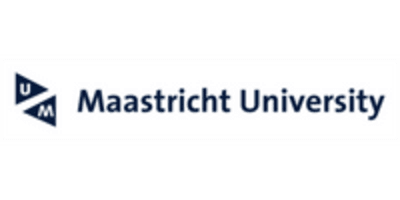
Maastricht University

Introduction
Maastricht University
Maastricht University (UM) is the most international university in the Netherlands and, with more than 20,000 students and 4,400 employees, is still growing. The university distinguishes itself with its innovative education model, international character and multidisciplinary approach to research and education.
Thanks to its high-quality research and education, as well as a strong focus on social engagement, UM has quickly built a solid reputation. Today, it is considered one of the best young universities in the world.
Since our establishment, we have fully implemented Problem-Based Learning (PBL) in our teaching and we are continuously developing it further. Students are challenged not only to develop professional expertise, but also to work on their talents, interests and skills. PBL helps them become true global citizens.
UM can rightly call itself the European university of the Netherlands. This starts with our international students and staff, who represent more than 100 nationalities. But it is also reflected in the content of our programmes, most of which are taught in English. We see ourselves as a 'living lab' and a centre of expertise for Europe.
Providing excellent preparation for the labour market—that is our commitment. At Maastricht University, students are given the space to develop academically, professionally and personally. This helps them become active, globally oriented citizens with 21st-century skills or, in other words, easily employable professionals.
Maastricht's identity is determined by its history, location and the people who live and work here. Maastricht University's research reflects this and is centred on four themes: Quality of Life, Learning and Innovation, Europe in a Globalising World, and Sustainability and Circularity. Some of the issues that fall under these themes are healthy ageing, climate change, demographic changes, the impact of technological developments, ageing populations, healthy and affordable food, and the European integration process.
Campus Features
Student rooms
Start your search as soon as possible; well before you come to Maastricht or Venlo. A student room means living and eating together with other students. The average rent is between 400 and 500 euros. Most students live in a room in the city centre, but there are quite a few who commute from a suburb or a nearby town, sometimes even across the border in Belgium. Some UM faculties are located in the city centre, others are close to the Health Campus/MUMC+.
Furnished room
Most rooms can be found within walking or biking distance from the university buildings and public transport is excellent. Maastricht Housing will help you find a suitable room. Many exchange students rent a furnished room in one of the buildings of the UM Guesthouse, which are all located close to the centre. There are 350 rooms available for 1 or 2 students per room and 45 rooms/studios for master’s students.
Alternative housing
Maastricht also offers alternative housing, such as anti-squat houses or Het Landbouwbelang, a housing community of artists, musicians, and designers, but also for (international) students. It is an autonomous free zone, urban community and open living room with collective gardening and cooking, a give-away store, a concert room and an event hall.
Programs
- BA/BSc in University College Maastricht
- BA/BSc in University College Venlo
- BSc in Biomedical Sciences
- BSc in Business Analytics
- BSc in Business Engineering
- BSc in Computer Science
- BSc in Data Science and Artificial Intelligence
- BSc in Econometrics & Operations Research
- BSc in Economics and Business Economics
- BSc in International Business
- BSc in Maastricht Science Program
- Bachelor Brain Science
- Bachelor Psychology
- Bachelor Regenerative Medicine and Technology
- Bachelor in European Public Health
- Bsc in Circular Engineering
- International Joint Master of Research in Work and Organizational Psychology
- MSc in Biomedical Sciences
- MSc in Business Intelligence and Smart Services
- MSc in Econometrics and Operations Research
- MSc in Economics
- MSc in Economics and Strategy in Emerging Markets
- MSc in Epidemiology
- MSc in Financial Economics
- MSc in Global Health